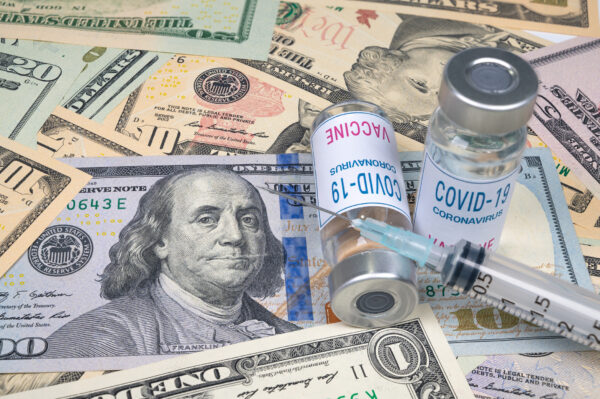
The Centers for Medicare & Medicaid Services is increasing the Medicare payment amount for administering the Covid-19 vaccine in a bid to support providers.
For vaccine doses administered on or after March 15, the national average Medicare payment rate will rise from around $28 to $40 for single-dose vaccines. The rate will jump from approximately $45 to $80 for two-dose vaccines. Physicians, hospitals, pharmacies and other immunization administrators will be eligible to receive the new payment amount.
The exact Medicare rate will depend on the type of entity that administers the vaccine and where it is located. Vaccine providers are not allowed to charge patients any amount for administration.
The updates to the payment rate “reflect new information about the costs involved in administering the vaccine for different types of providers and suppliers,” the CMS news release states.
The higher reimbursement aims to support providers as they take actions to increase the number of vaccine doses they can administer each day. These include establishing new or growing existing vaccination sites, conducting patient outreach and education, and hiring additional staff.
“Now, today, we are doing more than saying thank you to all the people we call heroes,” said Andy Slavitt, senior Covid-19 adviser to the White House, during a press briefing held Monday. “This will make it easier for more healthcare providers to get out into communities and give more Covid shots to people in need. We need this heroic team in particular to make sure that our highest-risk and underserved populations are cared for.”

A Deep-dive Into Specialty Pharma
A specialty drug is a class of prescription medications used to treat complex, chronic or rare medical conditions. Although this classification was originally intended to define the treatment of rare, also termed “orphan” diseases, affecting fewer than 200,000 people in the US, more recently, specialty drugs have emerged as the cornerstone of treatment for chronic and complex diseases such as cancer, autoimmune conditions, diabetes, hepatitis C, and HIV/AIDS.
Currently, 135 million Covid-19 vaccine doses have been delivered across the country, and 109 million have been administered, according to data from the Centers for Disease Prevention and Control.
The number of people vaccinated is expected to jump up significantly in the next few months as President Joe Biden has set an ambitious goal for states — make all adults eligible for vaccines by May 1.
To help achieve this, the federal government plans to take some vaccination cost burdens off of states. Per the $1.9 trillion American Rescue Plan Act, which was signed into law last week, the government will cover 100% of the cost of getting Medicaid and Children’s Health Insurance Program beneficiaries vaccinated.
“This protects states from bearing any costs associated with the increased Medicare reimbursement rates,” Slavitt said. “And the Biden administration stands ready to work with states who are interested in increasing their Medicaid reimbursement rates for vaccinations so that we can make sure that we have most effectively reached vulnerable communities.”
“This is an important health equity step, as working and lower-income Americans have faced the brunt of this crisis and must receive the resources needed to protect them,” he added.
Photo: Jae Young Ju, Getty Images













